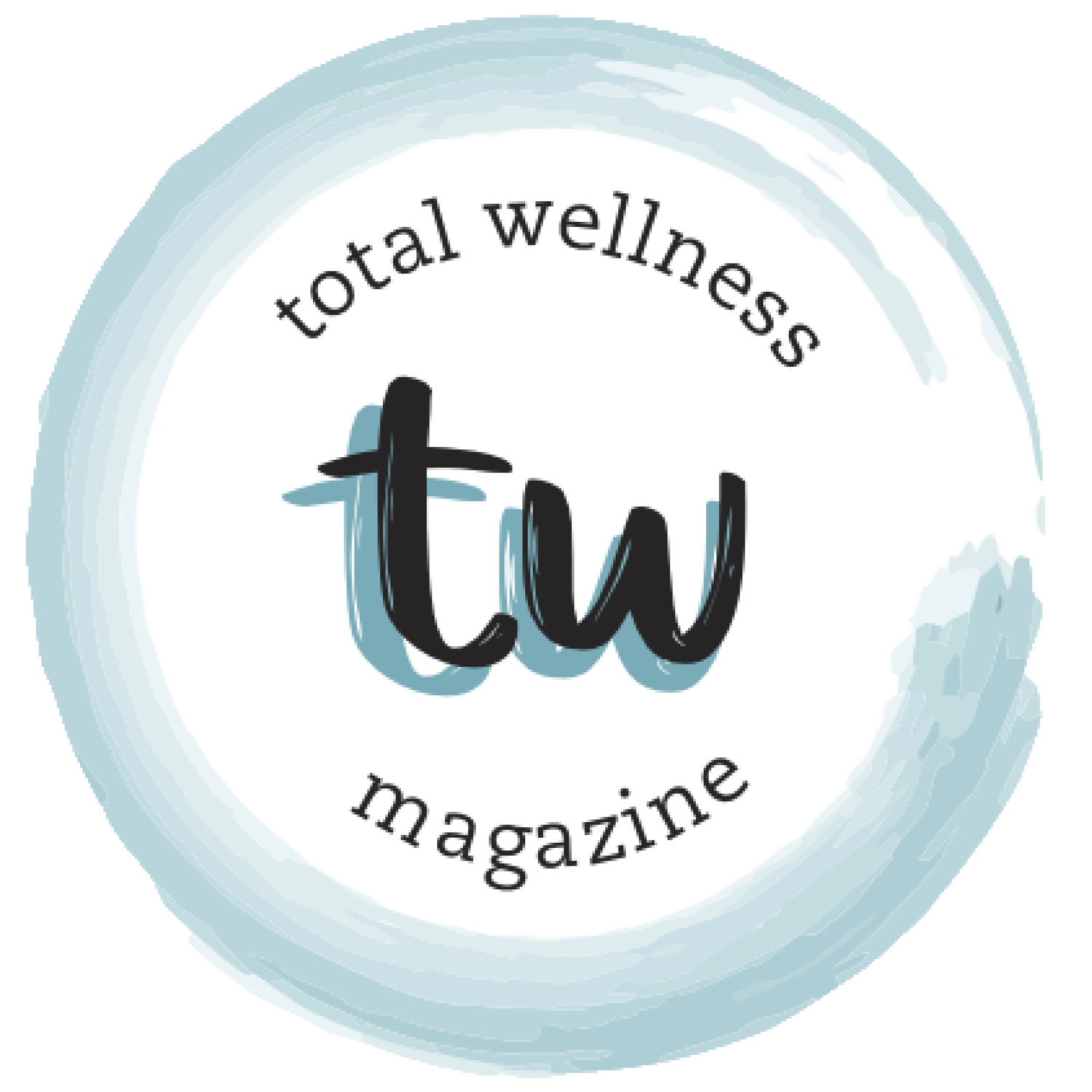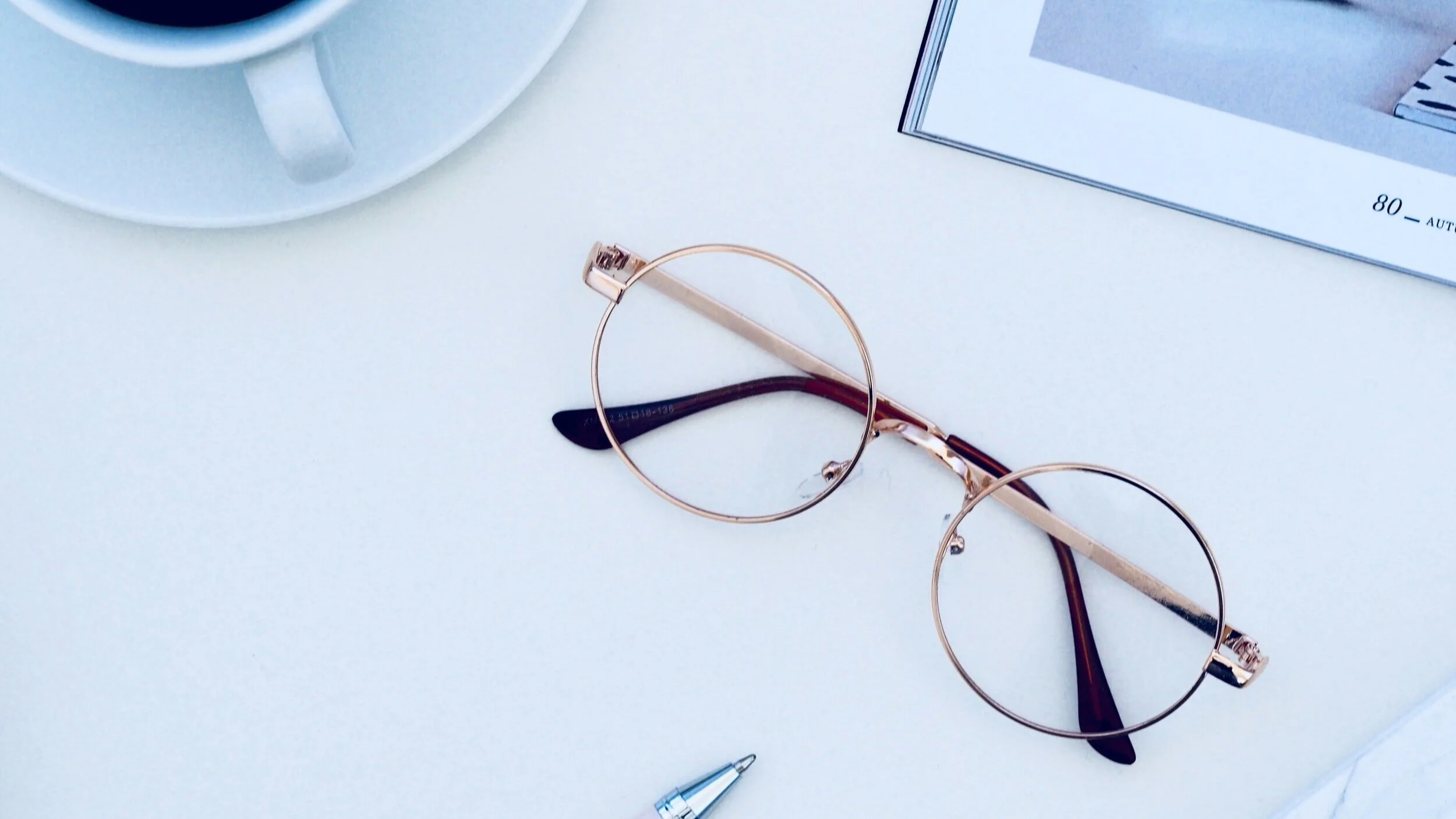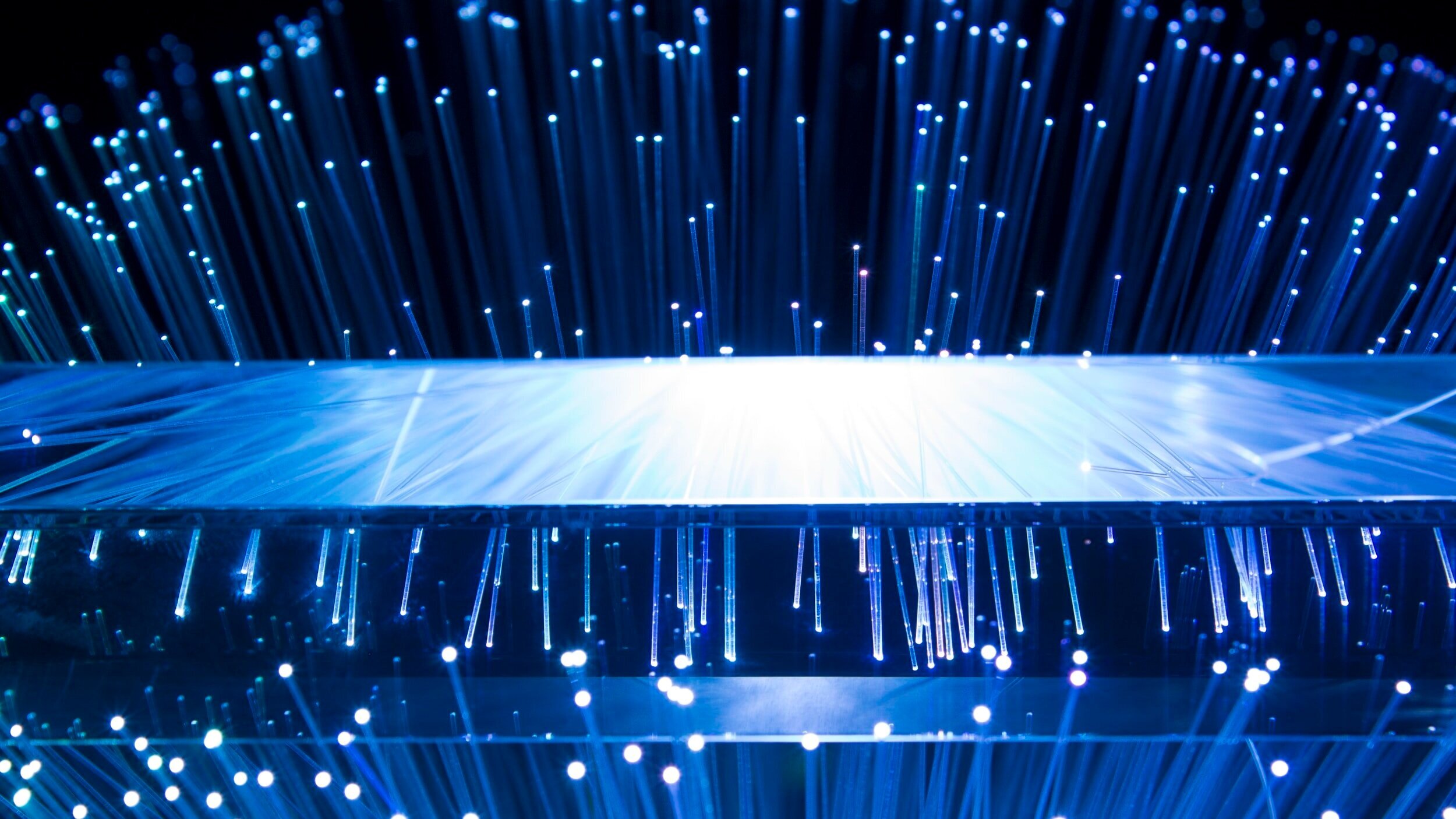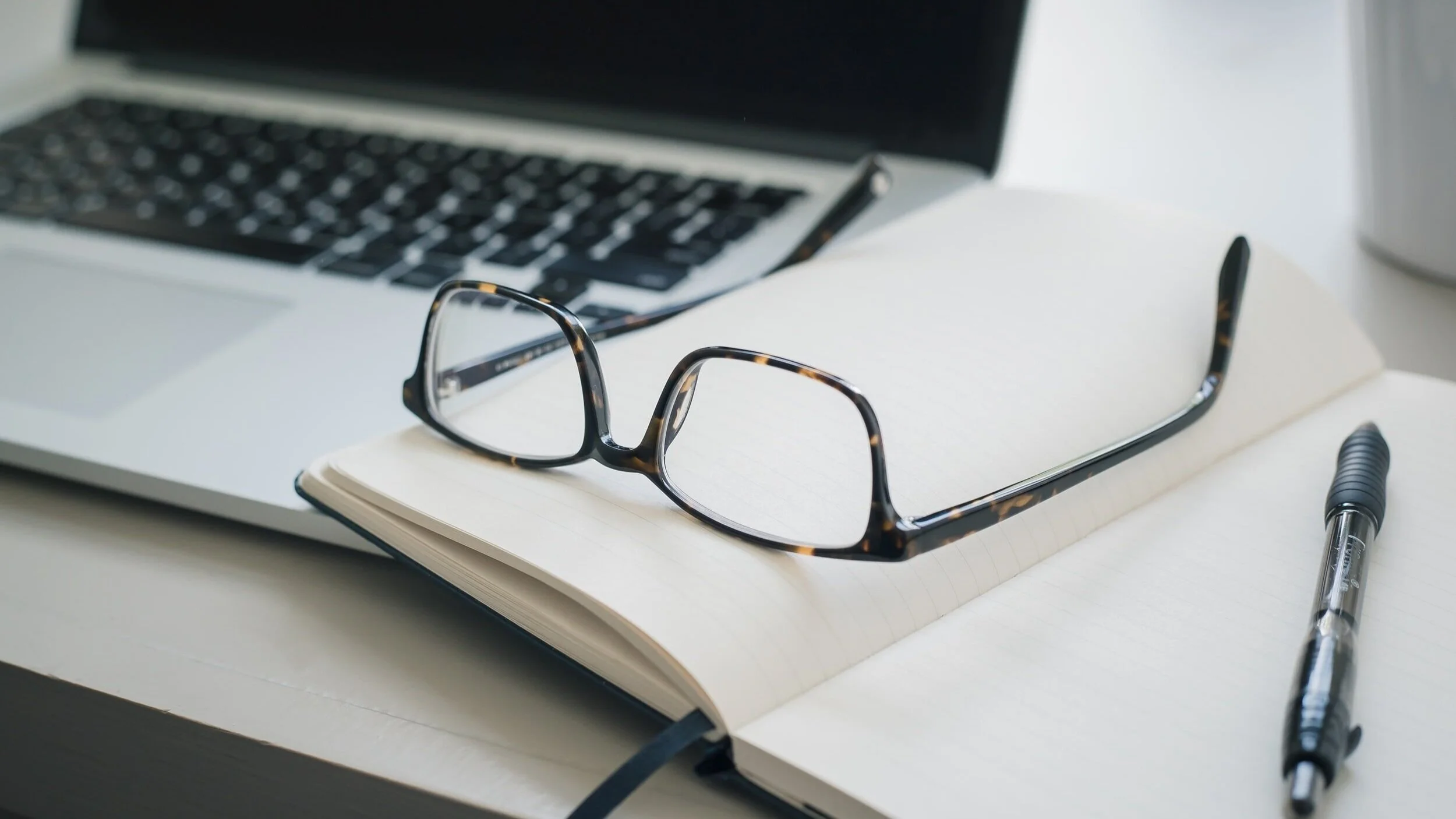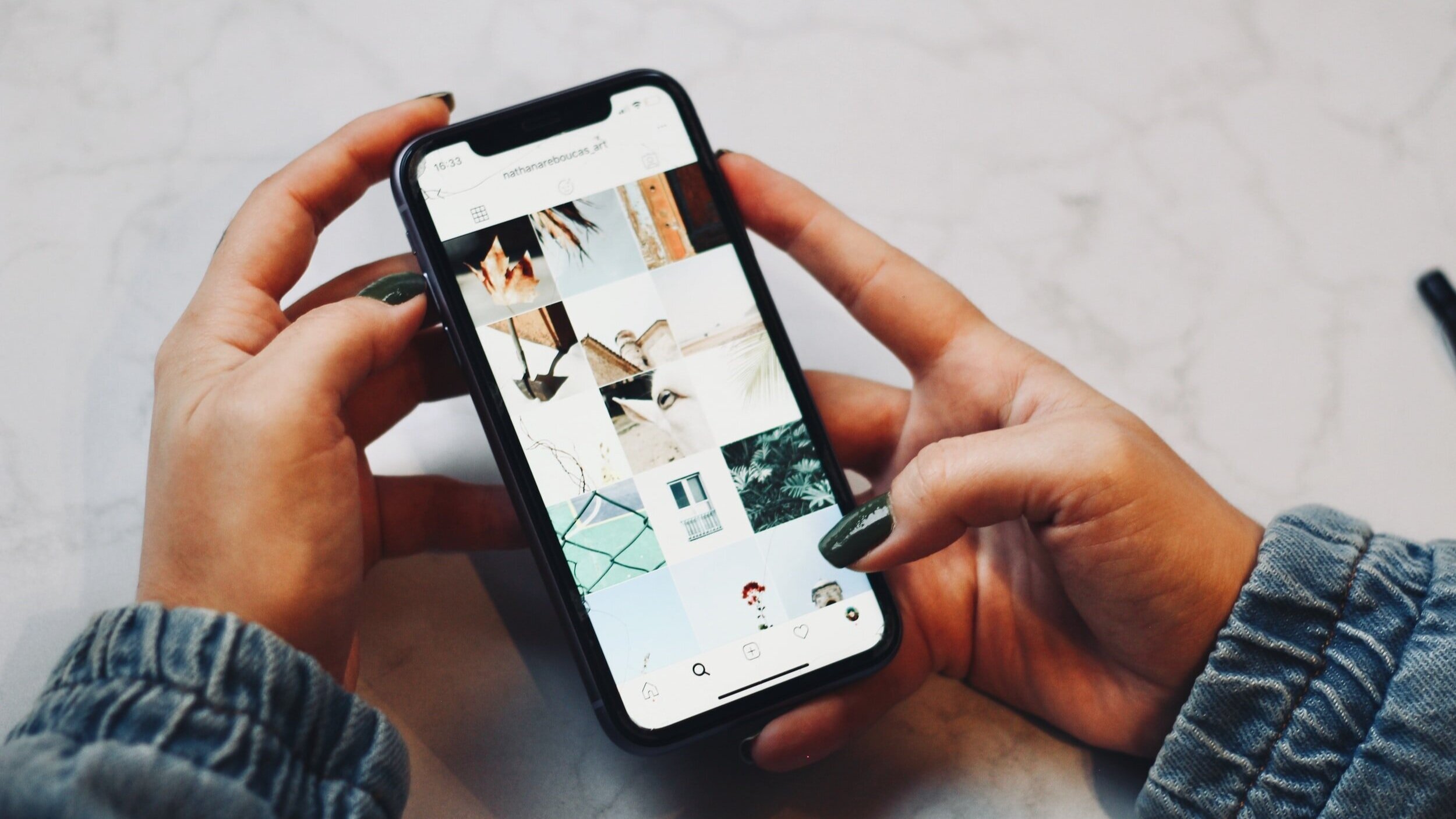Do Blue Light Glasses Really Work? A College Student's Experience
In August, my cousin asked for my advice: rose gold or silver frames?
“You’re getting new glasses?” I asked.
“Nah, they’re blue light glasses, to help with being on the computer all day. You should try them!”
It was my first time hearing of blue light glasses; I was confused about what exactly the glasses were and quickly dismissed them as “just another new fad.”
The next month, I received a text from a friend asking for my assistance in selecting glasses. She figured since I’ve had prescription glasses from the age of eight, I’d be a glasses expert.
“Oh wow—you need glasses now?” I asked.
“No, they’re blue light glasses,” she responded.
Like I said, I knew nothing about blue light glasses, so I wasn’t too helpful (sorry, Kate!).
Lately, even Snapchat selfies from my non-glasses wearing friends have been increasingly peppered with blue light glasses, and I’ve begun wondering: if all my friends are wearing blue light glasses, would I benefit from wearing them too? My curiosity was piqued, and I did some research to investigate the usefulness of blue light glasses before trying the glasses myself.
What is Blue Light?
So, firstly, what is the blue light that blue light glasses supposedly filter? Blue light is brighter and has a shorter wavelength than most light on the spectrum. Blue light comes from everywhere, including the sun. However, screen devices like TVs, smartphones, and computers emit more blue light, meaning we are exposed to a higher proportion of blue light than our pre-device-using ancestors were. [1]
Excessive exposure to blue light most notably disrupts sleep cycles, particularly when devices are used at night. However, contrary to popular belief, blue light does not cause the discomfort people experience after long hours of screen time. Rather, electronic overuse is the culprit: overuse causes computer vision syndrome (CVS) with symptoms like headaches, dry eyes, eye strain, and blurred vision. [1]
So Do Blue Light Glasses Really Help?
Blue light glasses are advertised as easing CVS symptoms by filtering out blue light. But if blue light isn’t responsible for the uncomfortable symptoms associated with extensive screen time, do blue light glasses really make a difference?
The American Academy of Ophthalmology (AAO) says they do not. Because there is no evidence that screens emit a damaging type or amount of light, blue light glasses aren’t recommended—instead, the AAO suggests simply adjusting one’s screen habits. [2]
On the other hand, a pilot study comparing placebo glasses with blue light filtering glasses found that participants reported fewer CVS symptoms when wearing the blue light glasses, suggesting that these glasses may alleviate the dry eyes, headaches, and eye strain associated with prolonged screen time. [3]
Clearly, there is plenty of controversy about whether blue light glasses alleviate CVS symptoms. However, there is less dispute regarding blue light glasses’ positive effect on melatonin levels and consequently, restfulness. Melatonin is a hormone that regulates sleep and wakefulness cycles: darkness generally indicates higher melatonin production, which readies the body for sleep. A study found that subjects who wore blue light glasses for several hours prior to their bedtimes had increased melatonin levels and improved sleep quality. [4]
I wasn’t too surprised to find contradicting claims about blue light glasses’ effectiveness in relieving headaches, dry eyes, and other CVS symptoms. I was, however, surprised to learn that blue light glasses often effectively block blue light, improving sleep quality. With a curious yet skeptical mindset, I decided to buy a pair and test them out for myself.
so, what were they like?
With the varied claims on the functionality of blue light glasses, I had dim expectations for the glasses’ effectiveness. But since my friends had raved about the benefits of the glasses, I did hold onto a shred of hope that these glasses would help alleviate the CVS symptoms I regularly experience due to spending extensive hours online.
I decided to purchase the “MEETSUN blue light blocking glasses” on Amazon. They are advertised as blue light filtering, eye-strain preventing, and sleep promoting. The glasses are $16 for two pairs, and have 4.4 stars with 14,736 ratings.
Given the glasses’ modest price, I was a bit skeptical about their effectiveness. This concern was anticipated by the glasses company: when the glasses arrived, they were packaged with a mini “blue light generator” and a white test strip. When I clicked the blue light generator on, it left a dark spot on the test strip. However, when I clicked the generator on and shined it through the blue light glasses’ lenses, there was no spot left on the test strip. This result, I figured, meant the blue light filtering of the glasses was sound.
The glasses arrived in the midst of my midterm-heavy week, when I was using my laptop nearly all day, every single day. I’m a little ashamed to admit that even when I did take study breaks, I was often on my phone. As a result, my eyes felt extremely strained and dry, and I had a dull headache for several days.
I was excited to test if the blue light glasses would change things. I wore the glasses Tuesday to Friday, from around eight in the morning to ten at night—up until about an hour or two hours before I went to bed. I’d keep the glasses on through my Zoom classes, while studying on my laptop, and when I’d periodically distract myself from school with my phone; I removed the glasses for non-electronic-device activities like eating and exercising.
On the days I did wear the blue light glasses, my eyes still felt dry—likely because of my prescription contacts—but they also felt less strained (though this may very well be a placebo effect). I didn’t notice any changes in my sleep quality, but my lack of sleep can be chalked up to poor habits characteristic of midterm madness—staying up late, overusing electronics, and sleeping insufficient hours. Since my eyes did feel less strained with blue light glasses, I plan on wearing the glasses more regularly to see if this effect continues, especially in a week with a less heavy workload.
To try or not to try?
So, should you wear blue light glasses? While the FDA doesn’t have any recommendations on blue light glasses, many people do feel they make a difference. [1] Additionally, if you (like me) use screen devices close to your bedtime, the blue light filtering of the glasses could improve your sleep.
I think that blue light glasses are a fun try, and for those interested, there are plenty of options that accommodate all price ranges. Additionally, prescription-glasses wearers can request a “blue light filtering” option for their lenses.
If you are still skeptical of blue light glasses but struggle with CVS and sleeplessness, here are some tips: [2]
Try to avoid looking at screens 2-3 hrs before sleeping (or for as long as you can resist the temptation)
Practice the “20-20-20” rule: every 20 minutes, shift your gaze to an object 20 ft away for at least 20 seconds
Sit about an arm’s length away from your computer
Use a matte screen filter to reduce glare
Increase screen contrast to reduce eye strain
Ultimately, even if the benefits of the glasses were to be purely attributed to the placebo effect, if it makes you feel better, that’s all that matters. Plus, there are some pretty cool designs out there, so if you’ve been looking for an excuse to get yourself some snazzy shades, then blue light glasses may be the perfect option for you! And, if the glasses don’t work out, you can always save them for a fun Halloween costume.
References
“Blue Light Glasses - Helpful or Just Hype?” webmd.com. (2019).
“Are Computer Glasses Worth It?” aao.org. (2017).
“Impact of blue light filtering glasses on computer vision syndrome in radiology residents: a pilot study.” J Med Imaging (Bellingham). (2020).
“Attenuation of short wavelengths alters sleep and the ipRGC pupil response.” Ophthalmic Physiol Opt. (2017).
